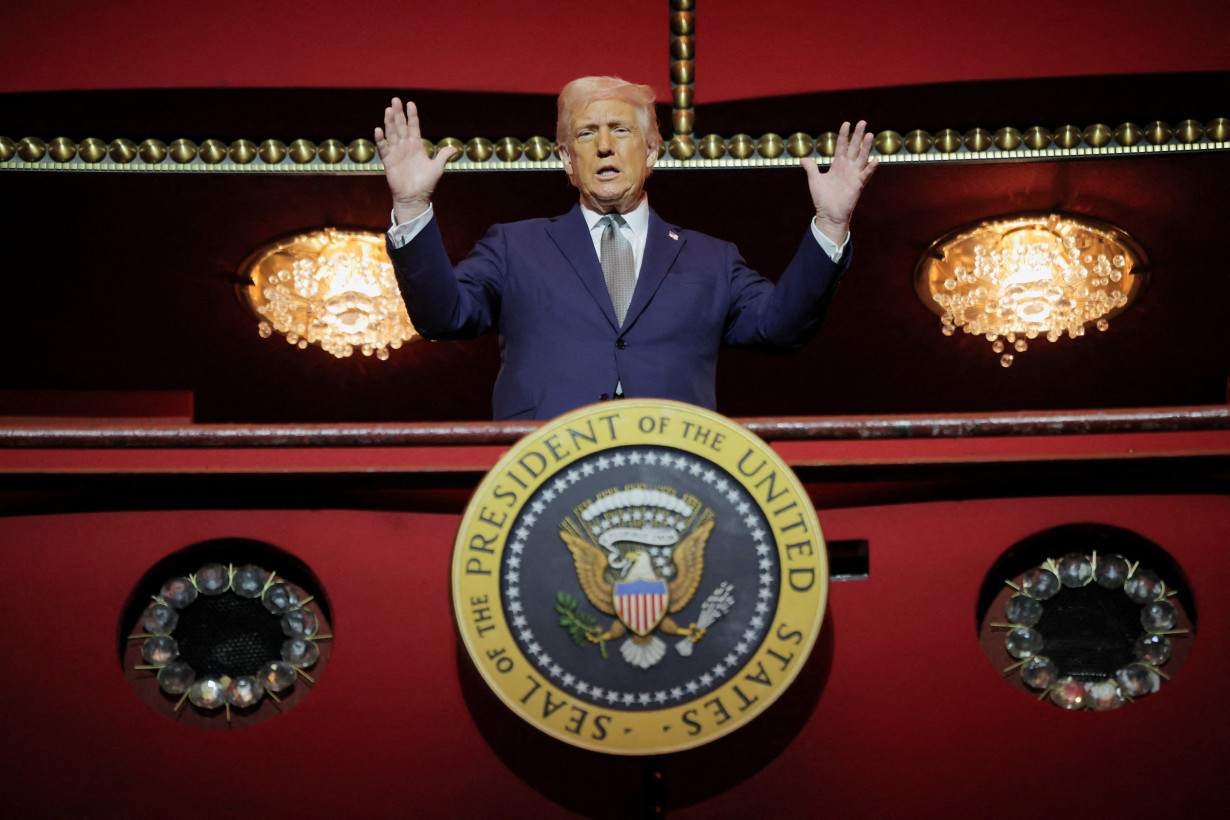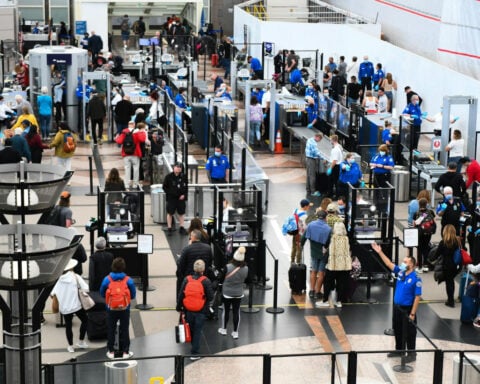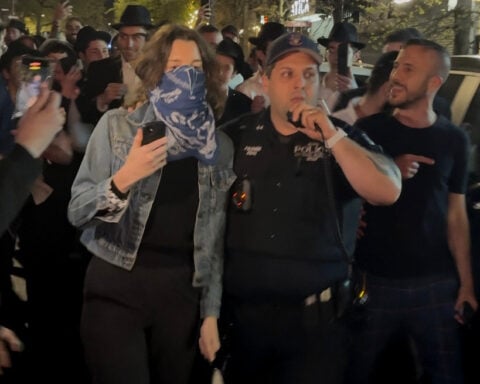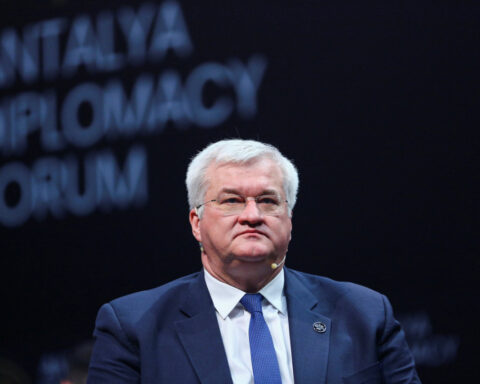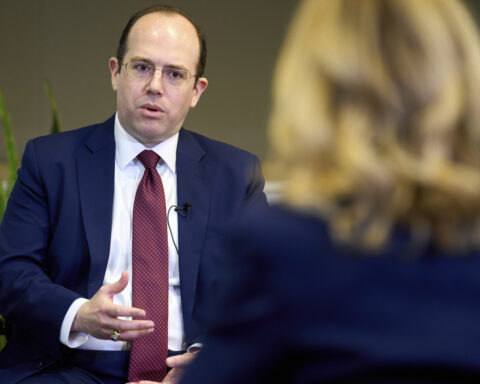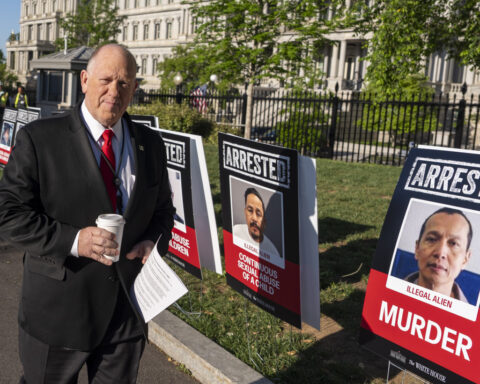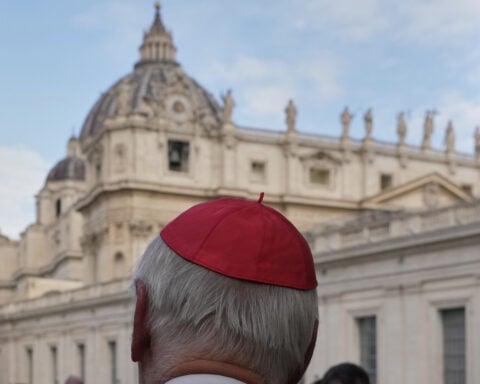By Luc Cohen, Tom Hals and Jack Queen
(Reuters) - The Trump administration has likely exceeded its authority in invoking rarely applied laws to justify parts of its wide-ranging immigration crackdown, legal experts said.
Still, the Supreme Court could ultimately determine if the White House has the far-reaching power it claims to decide who should be deported.
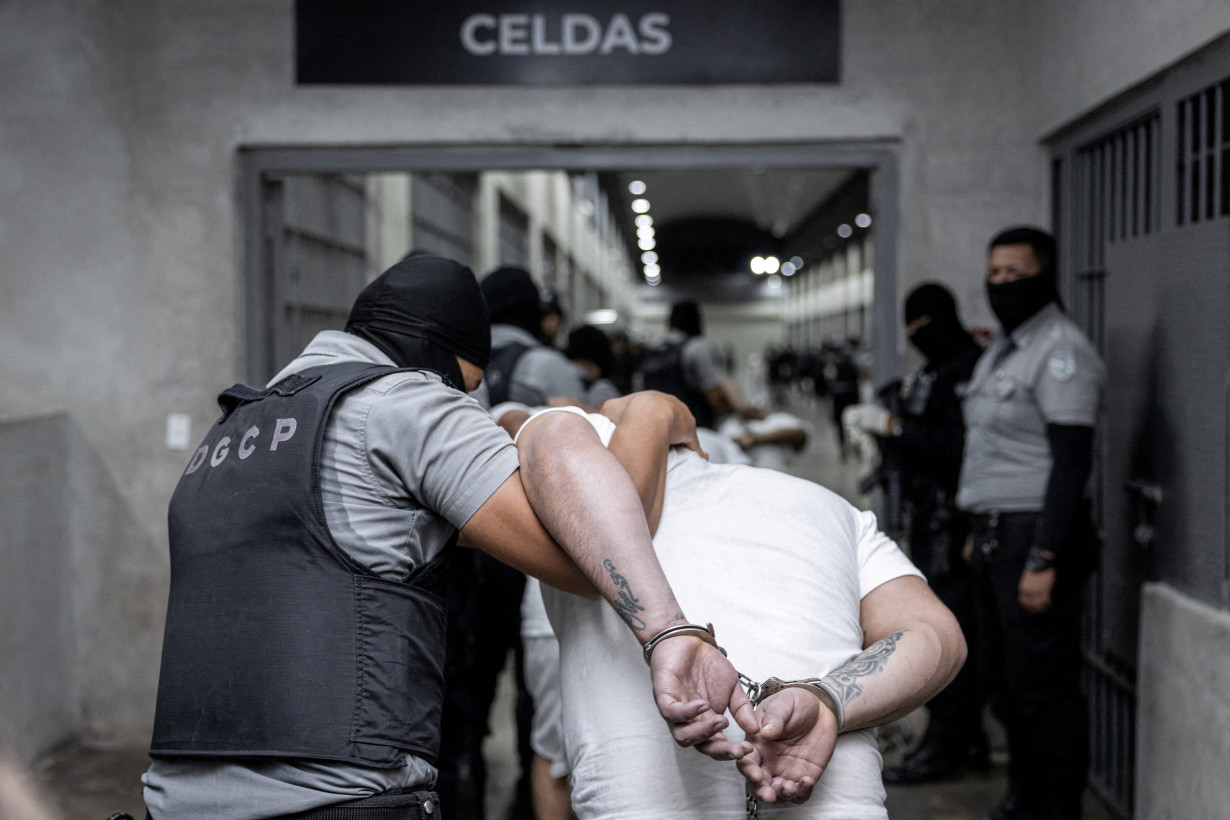
President Donald Trump, a Republican, has drawn pushback from Democratic lawmakers and civil rights groups for deporting alleged Venezuelan gang members to El Salvador by citing a wartime law from 1798, and for trying to deport a lawful permanent resident under an untested statute passed in 1952.
In both cases, the administration likely overstepped its statutory authority and is vulnerable to being overturned by courts, said immigration lawyer David Leopold.
"These are unilateral, factual determinations made by the executive," Leopold said in an interview on Monday.
Neither the White House nor the Justice Department immediately responded to requests for comment.
The Trump administration over the weekend invoked the 18th-century Alien Enemies Act, which gives the president the authority to detain and deport foreign citizens during times of war, to deport 238 alleged gang members.
The administration asserted that the gang, Tren de Aragua, was invading the United States, justifying their deportations under the law, which was enacted to combat spying and sabotage during tensions with France.
But U.S. District Judge James Boasberg in Washington temporarily blocked any deportations under the Alien Enemies Act, writing that the law refers to hostile acts perpetrated by another nation.
The alleged gang members were flown to El Salvador nonetheless, potentially setting up a constitutional clash.
Boasberg's ruling came in response to a lawsuit brought by the American Civil Liberties Union, which said the Trump administration's invocation of the law would deprive people in immigration detention of due process rights because they would not be able to challenge the determination that they are "alien enemies."
Press Secretary Karoline Leavitt wrote in a post on X on Monday that the Supreme Court had "repeatedly made clear" that federal courts have no jurisdiction over the president's authorities under the Alien Enemies Act, which was used to justify internment camps for people of Japanese, German and Italian descent during World War Two but had not been invoked since.
Leavitt did not specify the Supreme Court cases she was referring to, and legal experts said they were not aware of any such precedent.
"They are just making stuff up," said Michael Gerhardt, a law professor at the University of North Carolina.
Scott Anderson, a fellow with the Brookings Institution think tank, said the Supreme Court in 2015 declined to endorse the idea that the executive branch had exclusive authority over foreign affairs. Anderson said the idea that foreign policy is beyond judicial or congressional review is "complete nonsense."
Josh Blackman, a constitutional law professor at South Texas College of Law Houston, said the president has the right to decide what constitutes an invasion, and that no formal declaration of war is needed.
He pointed to a 1948 Supreme Court decision, Ludecke v. Watkins, upholding the removal under the Alien Enemies Act of a German national in 1946, after World War Two ended. The court found that determining when a "declared war" ended was the role of the executive branch, not the courts.
"The executive branch has discretion to decide this as a political question," Blackman said.
The circumstances of the removal of the alleged gang members is different than those in the Ludecke case because there is no declared war.
The Trump administration has already appealed Boasberg's temporary block on the deportations. The question of whether the administration's invocation of the Alien Enemies Act was constitutional could ultimately end up before the Supreme Court, which has a 6-3 conservative majority.
FREE SPEECH FIGHT
Similarly, the statute used by the Trump administration to justify the immigration detention of Columbia student Mahmoud Khalil appears to have been used only once before, according to legal experts.
Lawyers for Khalil, a green card holder of Palestinian descent, have said the arrest was retaliation for his participation in pro-Palestinian protests and violated his rights to free speech as guaranteed by the First Amendment to the U.S. Constitution.
The administration has justified his detention under a provision of the 1952 Immigration and Nationality Act stating that any immigrant may be deported if the secretary of state determines that their activities or presence in the U.S. could pose adverse foreign policy consequences.
Trump has, without evidence, accused Khalil of supporting Palestinian militant group Hamas.
The provision has been tested just once before, legal experts said.
In 1995, the statute was used to detain Mario Ruiz Massieu, a former assistant attorney general of Mexico, after the U.S. government failed four times to convince a federal judge to extradite him back to Mexico, where he faced criminal charges. Massieu challenged his detention in a case that was overseen by the late federal Judge Maryanne Trump Barry - Trump's older sister.
Barry found the law unconstitutional. She said Massieu's case begged the question if a noncitizen in the U.S. legally can be removed at the unfettered discretion of the Secretary of State without a meaningful opportunity to be heard. "The answer is a ringing 'no'," she wrote.
The administration of former President Bill Clinton appealed the ruling and it was reversed on a technicality that did not address the law's constitutionality.
A judge has temporarily blocked Khalil's deportation, and his lawyers are fighting for him to be released from immigration custody in Louisiana.
Khalil's lawyers have said that provision was not intended to stifle dissent. Leopold said Congress intended for the provision to be used sparingly.
"This broad immigration statute, based solely on some abstract foreign policy worry, is being used to chill speech," Leopold said.
(Reporting by Luc Cohen and Jack Queen in New York and by Tom Hals in Wilmington, Delaware; Editing by Noeleen Walder and Lisa Shumaker)

 Trump has begun another trade war. Here's a timeline of how we got here
Trump has begun another trade war. Here's a timeline of how we got here
 Canada's leader laments lost friendship with US in town that sheltered stranded Americans after 9/11
Canada's leader laments lost friendship with US in town that sheltered stranded Americans after 9/11
 Chinese EV giant BYD's fourth-quarter profit leaps 73%
Chinese EV giant BYD's fourth-quarter profit leaps 73%
 You're an American in another land? Prepare to talk about the why and how of Trump 2.0
You're an American in another land? Prepare to talk about the why and how of Trump 2.0
 Chalk talk: Star power, top teams and No. 5 seeds headline the women's March Madness Sweet 16
Chalk talk: Star power, top teams and No. 5 seeds headline the women's March Madness Sweet 16
 Purdue returns to Sweet 16 with 76-62 win over McNeese in March Madness
Purdue returns to Sweet 16 with 76-62 win over McNeese in March Madness
